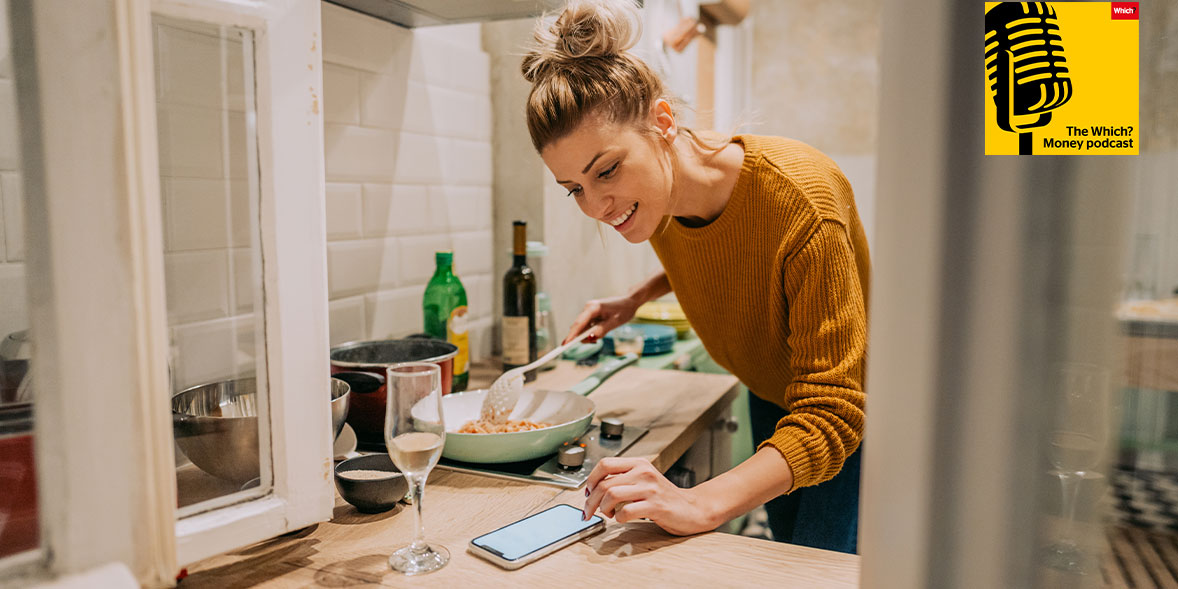
Buying off-plan
Advice on mortgage rates
Mortgage rates have rocketed since the government's mini-budget on 23 September.
If you're thinking of buying a home or need to remortgage this is likely to impact you.
For the latest news and advice on dealing with inflated mortgage rates, see the below stories, which are regularly updated:
- The cheapest mortgage rates for homebuyers
- What to do if you need to remortgage
- What's happening to house prices?
If you're worried about making your mortgage payments, see our guide on what to do if you can't pay your mortgage.
What is buying 'off-plan'?
Buying a house or flat off-plan means buying it before it's been built.
This might sound risky, but if you're buying in a market where property prices are on the up and more homes are needed, it can have its rewards.
That's why the sight of homebuyers queuing around the block waiting for a show home to open is becoming more commonplace.
Interest in buying off-plan has been buoyed by government schemes such as Help to Buy equity loans and First Homes, which are only available on new-builds.
Buying off-plan isn't always straightforward, however. You'll need to do your homework on the developer, and obtaining a mortgage can sometimes be tricky.
Pros and cons of buying off-plan
The specific advantages and disadvantages of buying off-plan depend largely on the property market in your area - but we've listed some of the main pros and cons below.
Advantages
- Your new home could be worth more than you paid for it by the time you move in.
- You could get a discount on the purchase price and secure one of the best plots.
- Buying off-plan could be the difference between buying a home or missing out entirely.
- You might be allowed to choose your own fixtures and fittings.
- You can get a Help to Buy equity loan on many off-plan properties.
Disadvantages
- You could have a long wait between agreeing to buy the property and actually moving in - maybe even a year or more, depending on what stage the build is at.
- The majority of lenders don't offer mortgages specifically designed for off-plan properties.
- Most mortgage agreements are only valid for six months, so you may need to re-apply if your completion date is further in the future.
- If you pull out of the purchase, you'll lose your reservation deposit.
- Under some circumstances, the developer could sue you if you can't complete the purchase.
- If you're one of the first to move in, you may find you're living on a building site.
You can find out much more about the process and its pros and cons in our full guide to buying a new-build home.
Questions to ask when buying property off-plan
What's the developer's reputation like?
Before buying, you should research the builder's previous developments to see if the homes match up to the pictures in the brochure.
It's also worth looking into customer satisfaction levels. Take any star ratings from industry bodies with a pinch of salt, and instead look at community groups and developer pages on social media to see whether buyers really are satisfied with the finished product.
Is there potential for a deal?
Housebuilders will usually be willing to negotiate, particularly at the start of a project when they need to sell properties in order to fund the continuation of the development.
The biggest discounts on off-plan property tend to be available to investors and cash buyers purchasing multiple properties.
But even if you're buying a home for yourself with a mortgage, there's often a deal to be done. Even if the developer won't budge on the purchase price, they may be willing to cover your stamp duty or throw in some fixtures and fittings.
It can be trickier to haggle on Help to Buy properties as they're often in high demand, but it's still worth a try.
Is proper protection in place?
Ask your property solicitor to make sure the developer has insurance to safeguard against them going bust or failing to complete the development.
Will there be access issues?
If your home is going to be one of the first that's completed, find out about any access issues and disruption that could be caused once you've moved in.
Some developments have issues with so-called 'unadopted' roads, where the local council won't 'adopt' a private road and take responsibility for its maintenance.
In these instances, some homebuyers have faced significant management or service charges to maintain the upkeep of the roads and any green spaces.
Buying off-plan and mortgage offers
When buying off-plan, you might be reserving a property a year or more before it's actually available to move in to.
One of the biggest issues with this is that mortgage offers generally expire after six months, meaning that - theoretically at least - you could find yourself left high and dry, having paid a reservation fee but unable to get a mortgage.
Thankfully, many mortgage lenders are now offering longer offer periods on their deals.
Some banks will offer you 12 months as standard on a new-build application, while others will allow you or your broker to apply for a six-month extension during the initial offer period.
Step-by-step guide to buying off-plan property
- Find a suitable development and speak to a mortgage broker about your circumstances.
- Reserve a home and pay a reservation fee (sometimes up to £1,000).
- Appoint a conveyancer to deal with the legal side of your house purchase.
- Arrange a mortgage. Your mortgage lender will then arrange a valuation based on the plans and development specification.
- Complete the paperwork, exchange contracts and pay your deposit.
- In the weeks before the final completion, have a snagging survey conducted to check for any defects, if possible.
- Get ready for completion. You'll usually be given two dates - the short stop (the date the developer expects to complete) and the long stop (the date the developer has to complete by).
Find out more: understand the mortgage implications of buying a new-build home.
'Flipping' property
'Flipping' happens when a buyer purchases a home off-plan and then attempts to sell it for a profit when the development is completed (or sometimes even before).
Investors planning to flip will target their developments carefully and buy when the first properties are released for sale.
Although it's popular with early birds in thriving markets, flipping is very risky as the housing market can change quickly. Even if prices are still rising, if too many investors buy properties in the same types of development, demand can quickly dry up.
Flipping is usually practised by cash buyers as it can be hard to get a mortgage for this type of investment. If you're thinking of flipping, you'll first need to check with the developer and your mortgage lender (if you're not a cash buyer), and work out in advance what you'll do if you can't sell the property.
- Find out more: buying a new-build home



















